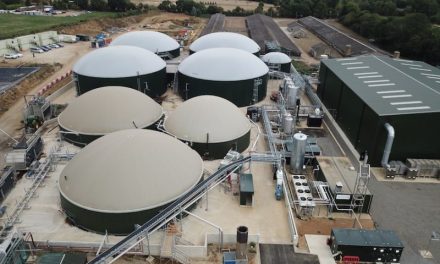 A total of 23 axial fans supplied by Elta have been installed throughout the first large Energy from Waste (EfW) facility to be built in the Lincoln area. The recently completed project on land off Paving Way, North Hykeham is a low cost facility that dramatically reduces the amount of non-recyclable waste that Lincolnshire County Council sends to various landfill sites.
A total of 23 axial fans supplied by Elta have been installed throughout the first large Energy from Waste (EfW) facility to be built in the Lincoln area. The recently completed project on land off Paving Way, North Hykeham is a low cost facility that dramatically reduces the amount of non-recyclable waste that Lincolnshire County Council sends to various landfill sites.
The fan manufacturer supplied: six SRECU heat recovery units; three aluminium long cased SmokeVent fans; five Revolution long cased fans; two backward curved, inline units; two aluminium and one GRP long cased fans and one carbon filled ATEX fan all from the company’s factory in Kingswinford near Dudley in the West Midlands.
Elta Fans’ SRECU heat recovery units are designed to create healthy air quality and comfort within buildings by providing a constant supply of warm, fresh air. Each unit incorporates a plate heat exchanger capable of recovering up to 65% of the heat from the air being expelled through the building’s ventilation system. This cuts down on heat loss and thereby reduces the cost of heating. The outgoing air is passed over aluminium plates within the heat exchanger. This warms the plates which, in turn, transfer the heat to the fresh incoming air. The design of the heat exchanger keeps the incoming and outgoing air supplies separate, eliminating the possibility of any contamination of the fresh, incoming air by the expelled air.
With low profile, robust casings of double skin, galvanised sheet steel and fire-resistant mineral wool infill for quiet performance, SRECU heat recovery units are directly driven by an AC external rotor motor. Efficient, easy to mount and maintain, they are designed and manufactured with procedures as defined in BS EN ISO 9001: 2008.
All the Elta units were delivered to site where they were installed by electrical contractor, N.G.Bailey, the engineering, IT and facilities services company. Main contractor for the overall project in North Hykeham was Clugston Construction and lead civil works consultant was Arup.




